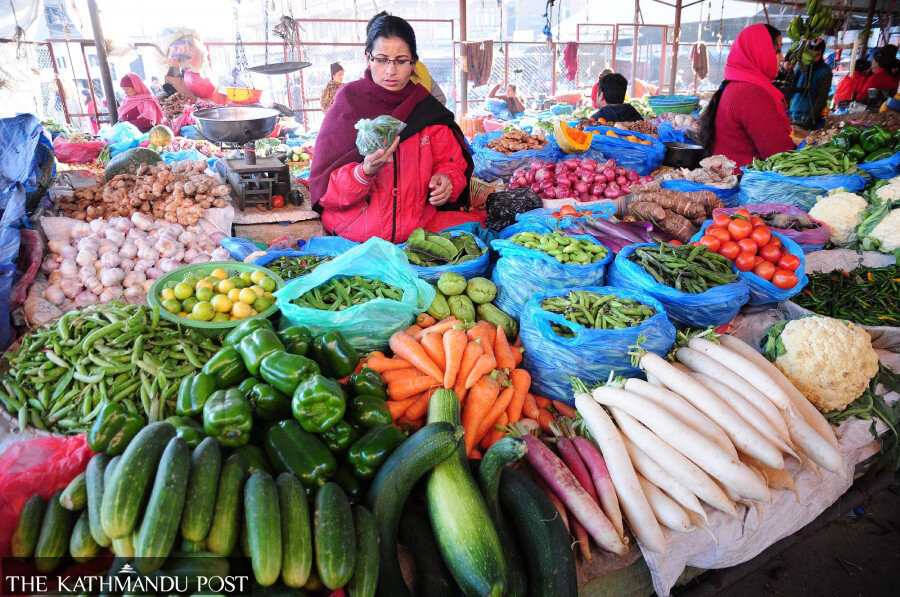Editorial
Untested, unsafe
Unless Nepal widens its fruit and vegetable testing, the disastrous effects of pesticides will only grow.
It is no secret that we are taking in chemicals-laced fruits and vegetables into our kitchens and bodies. But the Nepali government reports progress, suggesting most of the food we consume might be safe. Last year, the Department of Food Technology and Quality Control tested over 63,000 samples and found only 37 of them positive for pesticides. A similar report from the Central Agriculture Laboratory indicated that 8,503 of 8,575 samples tested for carbamate and organophosphate pesticide residues were safe for consumption.
These reports are far from comforting, as they include tests only for a limited number of pesticides. In reality, pesticide imports have more than doubled in the past five years in Nepal, from 169,360 kilograms in 2017-18 to 354,358 kilograms in 2022-23. According to Kantipur, a sister publication of this paper, nine kinds of pesticides are registered in Nepal. Among them, seven kinds are imported. While hundreds of pesticides fall under these groups, only two—residues of insecticide from the carbamate and organophosphate—are tested in the government’s laboratory. The rest are left untested and unregulated.
Such negligence from the authorities and from farmers who knowingly or unknowingly use insecticides and pesticides has endangered people’s lives. Heavy use of pesticides leads to severe health problems. The living examples of this are the residents of Gorkha Gandaki Rural Municipality in Gandaki Province. Sixty-one people in the place are fighting cancer, and 15 more are suffering from kidney failure. People in other districts are also struggling with the immediate health effects of pesticides (dizziness, tiredness, heart attack, vomiting, headache, among others) as well as long-term effects (cancer, retarded body growth, inborn disability, etc.).
The state cannot shun its responsibility to protect the lives of its citizens; the right to health is their fundamental right, too. There have been measures like declaring Karnali as an “organic province” six years ago. Yet, chemical fertilisers banned, farmers in the province were given no alternatives like organic compost and plant fertilisers to grow enough healthy crops and vegetables. Nor were there laboratories and manpower to test if the foods being produced were really organic. As yields dwindled, people became even more dependent on chemical-laden foods imported from India. The organic project, which could have been a model for the country, was instead a dismal failure.
If the use of pesticides continues, a nationwide public health crisis is not far off. The examination of foods for the heck of it must stop. If the authorities really want to work in favour of consumers, they must test for a wider range of pesticides in the food imported via the open border. There must also be more labs to test these products in local units. As important is allocating more technicians for this work, which even our few laboratories lack. All these measures seem a little too much to ask but they are all worth pursuing in the long run. At stake are the health and wellbeing of millions of Nepali. Experts also highlight the lack of knowledge and awareness among farmers about the use of pesticides—and local levels can play a key role in making them aware of their downsides. The more we educate them, the better we control the use of chemicals.




 10.12°C Kathmandu
10.12°C Kathmandu













